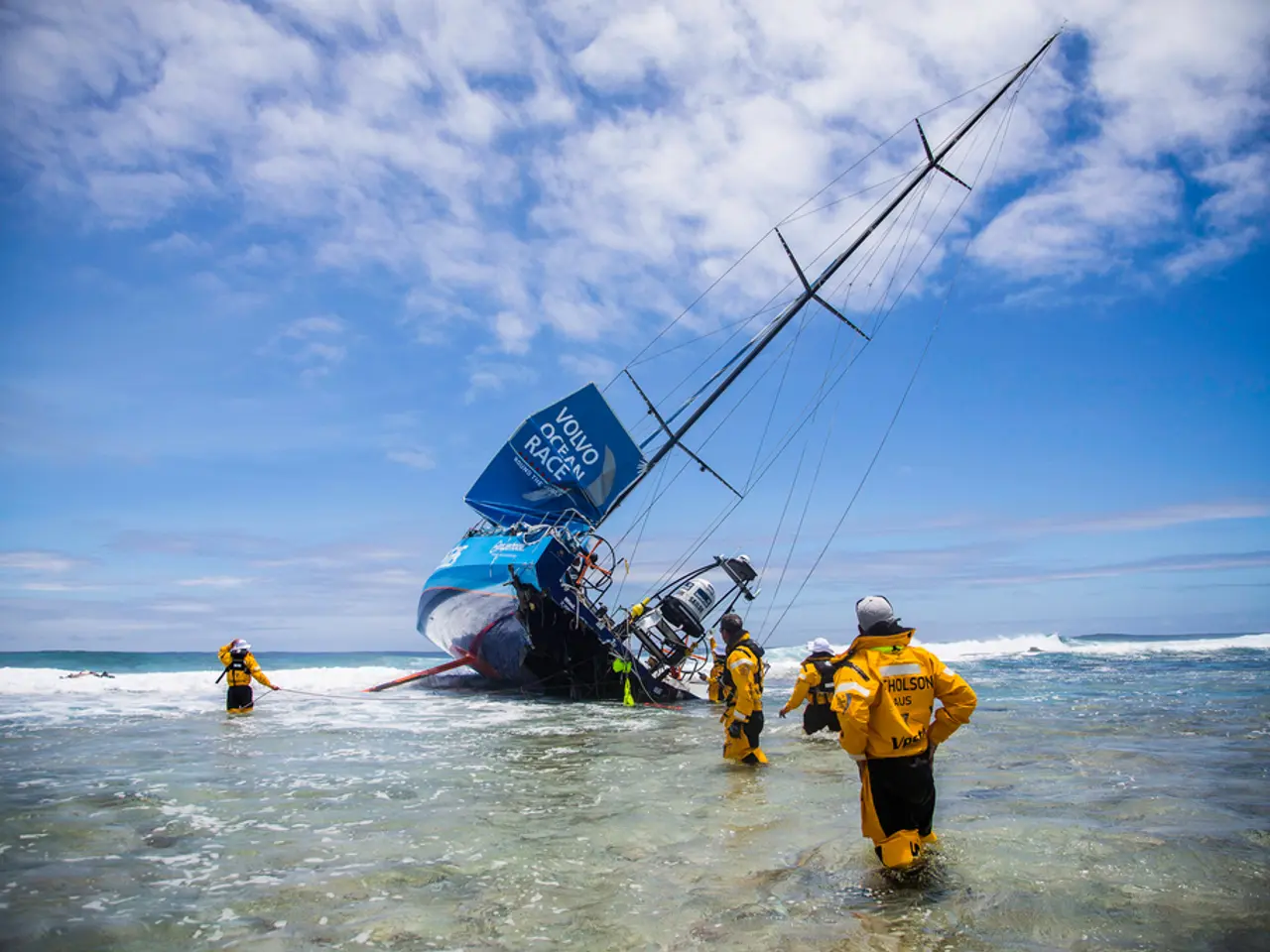Catastrophe Report: Preexisting Safety Lapses Prior to the Titanic Sinking
The U.S. Coast Guard Marine Board of Investigation (MBI) has released a detailed report on the Titan submersible disaster that occurred in June 2023, resulting in the loss of five lives. The report, spanning over 300 pages, outlines 17 safety recommendations aimed at enhancing oversight of submersible operations.
The Titan's sinking was primarily attributed to the inadequate design, certification, maintenance, and inspection processes of the operating company, OceanGate. The report also highlights the presence of a toxic safety culture and insufficient regulatory frameworks at both domestic and international levels.
The key recommendations from the MBI report include:
- Restricting Oceanographic Research Vessel designations for submersibles to better align regulatory oversight.
- Expanding federal and international regulatory requirements to cover all submersibles and vessels of novel design.
- Creating clear regulatory oversight on both international and domestic levels for persons or companies building or operating innovative watercraft/submersibles.
- Requiring submersible operators to notify the local Coast Guard office before dives, including submission of dive plans and emergency response plans tailored to maximum dive depths.
- Strengthening inspection, certification, and maintenance processes for submersibles.
- Improving whistleblower protections and processes under statutes like the Seaman’s Protection Act.
- Closing gaps in international maritime policy relating to submersible safety and operations.
- Emphasizing the need for exploration companies to follow safety protocols consistently rather than rely on misleading or incomplete safety claims.
- Addressing toxic workplace cultures and safety culture issues present in operating companies, exemplified by OceanGate.
- Improving real-time monitoring and data analysis protocols related to submersible hull integrity.
- Mandating proper off-season maintenance and storage procedures for submersibles that are used seasonally.
- Enhancing coordination among federal agencies to oversee and respond to novel maritime safety concerns.
- Facilitating pathways for innovation but within clear safety and oversight frameworks.
- Recommending measures to prevent misleading safety-marketing claims by operators to consumers.
These recommendations are intended to prevent future tragedies and improve the safety of submersible operations. The full MBI report can be accessed for further details.
The Dawood family, who lost two members in the disaster, issued a statement expressing their grief and calling for meaningful reforms, strict safety standards, and effective oversight in the submersible industry. The report's findings and recommendations underscore the importance of these calls for change.
(Note: The search results explicitly identify 17 recommendations, but this article focuses on the key priorities that align well with 14 main points, synthesized from the available public summaries.)
[1] U.S. Coast Guard Marine Board of Investigation. (2023). Report of Investigation into the Loss of the Deep-Submergence Vehicle Titan, 2023. Washington, D.C.: U.S. Government Publishing Office. [2] National Transportation Safety Board. (2023). Preliminary Report: Loss of Deep-Submergence Vehicle Titan, 2023. Washington, D.C.: NTSB. [3] OceanGate. (2023). Statement on the loss of the Titan submersible. Seattle, WA: OceanGate.
- The MBI report has identified the need for stricter regulatory frameworks to address the inadequacies in submersible design, certification, maintenance, and inspection processes, like those observed in the operating company, OceanGate.
- To ensure the safety of submersible operations and prevent future tragedies, the report proposes a focus on improved real-time monitoring, data analysis, and technological innovations, particularly in relation to submersible hull integrity.




